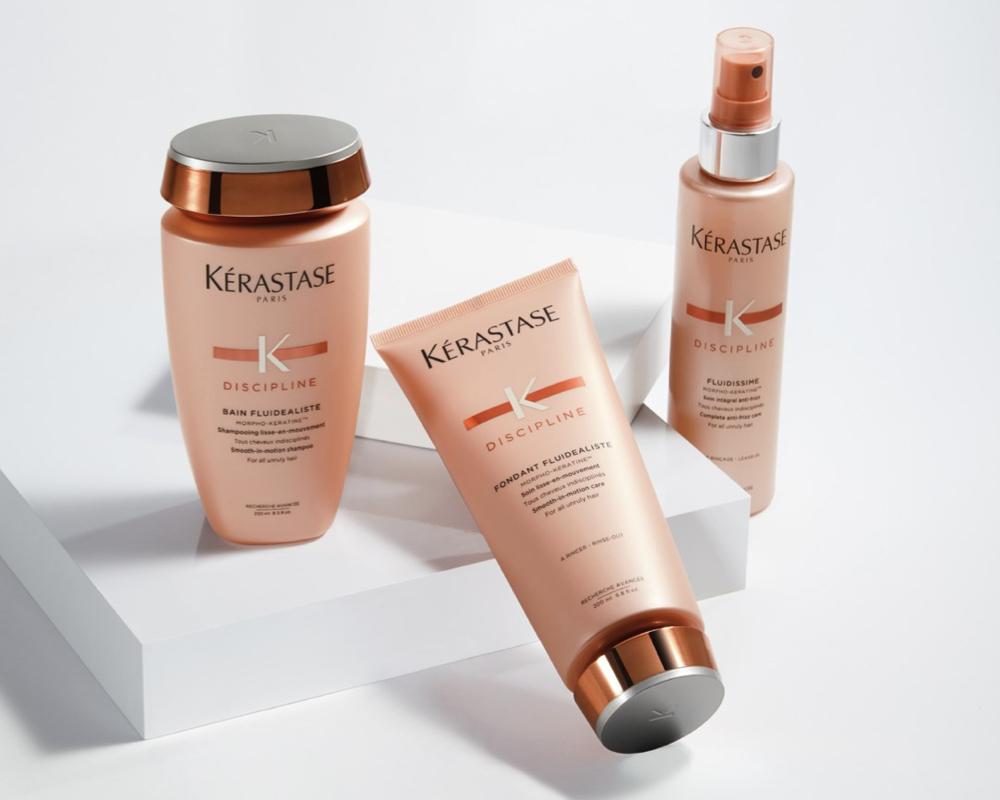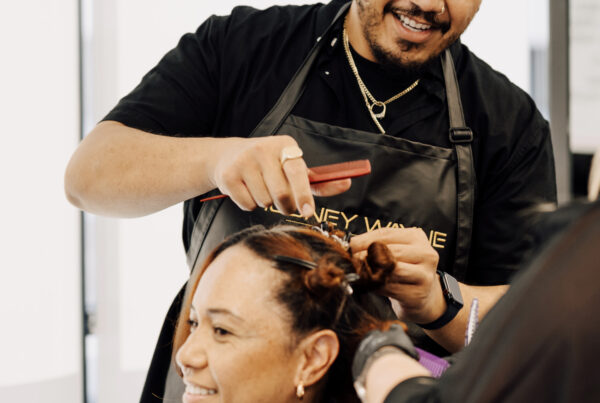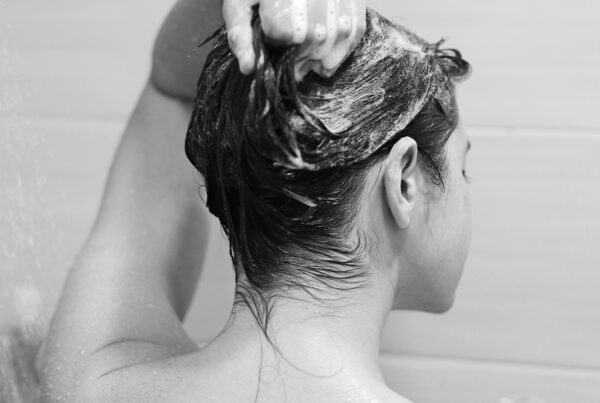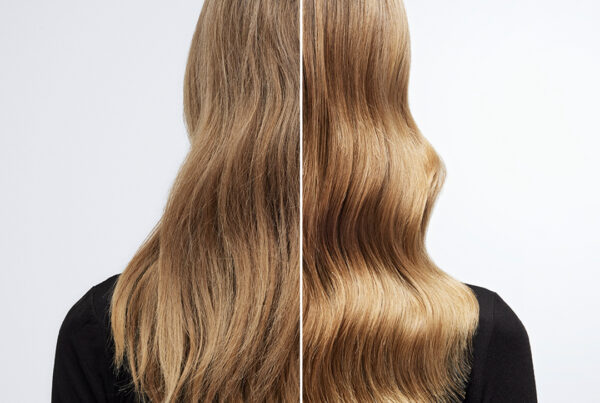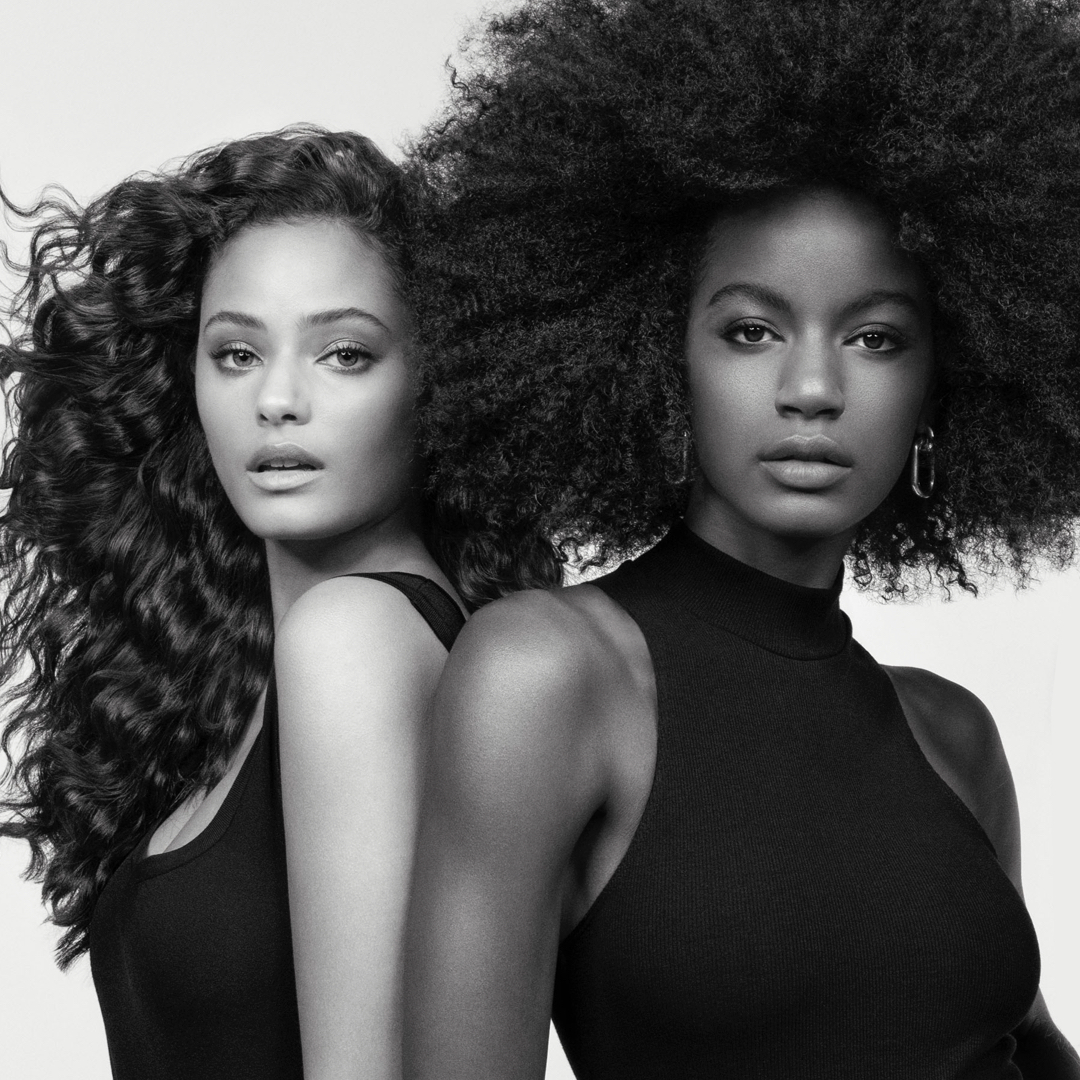
What is Frizzy Hair?
As we head to warmer weather, the topic of frizzy hair is often top of mind. Literally. Frizzy hair can affect all hair types, so what exactly is it and how do we prevent it? For a heads-up on all things frizz, follow the expert advice from Rodney Wayne education and creative director Newton Cook.
“Frizz is hair that doesn’t align with the surrounding strands but stick up and out, or curls independently, creating a fuzzy or irregular texture,” says Newton, adding “Frizz can also be new growth that’s not quite the same length as the rest.”
“Frizzy hair can be a real problem. It reduces the smoothness and shiny appearance of your hair, making your style look messy and less fabulous. It can make your hair appear dull or unhealthy. It can also make you feel uncomfortable in humid weather. The good news is that there are many ways to stop the frizz from happening, so you don’t have to suffer with this concern any longer.”
What Causes Frizzy Hair?
There are many reasons why hair becomes frizzy. If your hair strands have become dry and lacking in moisture they are more prone to frizz. Each strand of hair has a layer that protects the cells of the inner shaft from damage and gives them shine. When your hair is moisturised optimally this layer is even and smooth, but when hair is dried out is becomes rough and gaps open up. When the atmosphere is humid, the extra moisture in the air can be absorbed through the gaps causing the strands to swell, kink unevenly and become frizzy.
Heat is another factor contributing to frizziness. Washing hair with water that is too hot or using hot tools can further strip your hair of moisture and increase your hair’s potential to frizz. So lower the temperature in your shower and use nourishing hair products and heat protectors when styling with heat tools.
Poor quality supermarket shampoos and conditioners can contribute to frizz as well. If you use products with harsh chemicals, there is a risk they add serious frizziness too.
Newton warns, “The way you style your hair is another big factor. If you brush your hair while it is wet it can stretch the strands and disrupt the outer layer causing the hair to frizz or become puffy. Friction can lead to frizz, too. Vigorous towel-drying is a common cause, so gently dab your hair with a soft towel, never rub.”
All of these factors can cause frizzing and make your hair more prone to breakage when it is dry.
What Hair Types are Prone to Frizzing?
All hair types can suffer from becoming frizzy to varying degrees, so keeping your hair nourished is important. The concern is most common with curly hair due to the tight curves and cylindrical strands of curls having an increased potential to open up gaps in the outer protective layer. Wavy and straight hair can also be affected.
When the weather gets humid or moist, all types of hair like coarse or thick hair, dry hair, fine hair and straight are affected.
How to Prevent Frizziness in Your Hair
One simple way to prevent hair from frizzing is to avoid humidity and environmental pollutants, but this is not always an option. For a practical way to avoid frizziness, Newton suggests, “Instead of brushing your hair when it’s wet, use a wide tooth comb or specialised detangling brush. My brush of choice is The Wet Detangler by Tangle Teezer.
Using styling tools that are set to an optimum temperature is vital. Newton recommends the ghd range of hair stylers and dryers. And for hair that is already showing signs of frizziness Newton’s hot tool recommendation is the L’Oréal Steampod. “It infuses moisture into the hair while styling which will help to battle the effects of humidity,” says Newton.
Regular visits to the salon for a trim or shape and style will also help keep the frizzy ends at bay. “You can avoid frizz by ensuring you are using salon-quality products,” adds Newton. “Your haircare regimen should include nourishing and hydrating anti-frizz products to lock in moisture and keep your hair looking smooth and shiny.”
The Best Anti Frizz Products to Treat Frizzy Hair
When your strands are showing signs of frizzing reach for professional quality products to provide frizzy hair repair. Newton recommends an anti-frizz routine based on your hair type and lifestyle requirements.
Newton’s favourite anti-frizz routine for hair for all hair types is the Redken Frizz Dismiss Shampoo and Frizz Dismiss Conditioner with Redken Instant Deflate anti-frizz serum for those humid days. For heat protection, he includes Redken Frizz Dismiss Leave-In Smoothing Control Cream.
“When blow-drying hair prone to frizzing, I like to use Redken Big Blowout Gel because it has anti-frizz and anti-humidity benefits that will help your blow out last,” adds Newton.
For curly hair, Newton recommends Kérastase Curl Manifesto Bain Hydration shampoo, Kérastase Hydration Essentielle Conditioner, and the leave-in treatment Curl Manifesto Créme De Jour because they preserve natural oils and infuse curls with vital hydration.
For normal hair, wavy and straight hair Newton recommends Kérastase discipline Bain Fluidealiste shampoo with Kérastase discipline Fondant conditioner. And for heat protection include Kérastase Discipline Thermique in your ritual.
Newton concludes, “I like to always finish a dry style with the L’oréal Professionnel Anti-Frizz Fix hairspray that has a soft hold but is buildable, and an anti-frizz serum like Redken Styling Oil For All.”
Earn Rewards While You Fight Frizziness
You are welcome to visit any Rodney Wayne salon or Shampoo ’n’ Things store to talk with our experts about the right anti-frizz treatments for your hair. When you shop with us or receive a service, you can earn Rodney Wayne Rewards*. They’re points that can go towards salon services and professional hair care products. As a Rewards member, you’ll also get access to special offers and exclusive product releases. Next time you visit we invite you to check that we have your correct details.
*Ts+Cs apply. Rodney Wayne Rewards are not available with online purchases.

